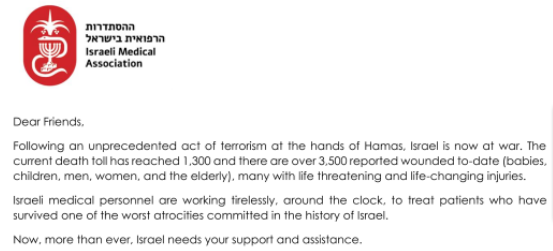Vaccine protection against COVID-19 wanes more quickly among cancer patients, but boosters rapidly bolster their antibody levels, Israeli research has found.
The study supports the case for giving cancer patients third vaccine doses in countries where they have only received two, according to author Dr. Hagai Ligumsky. And it encourages the rollout of fourth shots for this demographic in countries like Israel that already gave third shots, he added.
The peer-reviewed investigation, published in The Lancet, found that when cancer patients arrived to receive their third Pfizer shots, they had far lower antibody levels than healthy people of the same age who had received their initial shots at a similar time.
Cancer patients had an average of just 24 AU/ml, the standard measurement for antibodies, which stands for arbitrary units per milliliter. By contrast, healthy people had an average of 159 AU/ml.
In practical terms, this meant that the average cancer patient was only narrowly considered protected by their initial shots, while others were still well within the positive range.
Some 28.2 percent of the cancer patients were considered to have lost vaccine protection because of low antibody levels, while this was true only for 1.4% of healthy people.
“These results clearly support the notion that cancer patients under active treatment see their antibodies reduce quicker than others, and suggest that, for them, regular boosters make sense,” Ligumsky, an oncologist at Tel Aviv’s Sourasky Medical Center and one of the authors of the study, told The Times of Israel.
When the study participants at Sourasky received their third vaccine doses, both groups saw their antibodies quickly rise — albeit more for the healthy. Cancer patients averaged 1887 AU/ml, which is considered strong protection, a month after booster shots, while others averaged 3370 AU/ml.
Some 69 out of the 72 cancer patients were deemed positive for antibodies — in other words, protected by their booster shot — and all 144 healthy people were deemed protected.
He said that the new study supports plans to give a fourth shot to cancer patients in Israel. Health chiefs initially approved such shots, as part of a drive to give fourth doses to the over-60s, health workers and others deemed at risk. But while some people are being given fourth shots for a study, the national rollout is currently on hold.
“From our research, we see it is very likely this population will need ongoing boosters to keep antibodies high,” Ligumsky said, adding that a very low incidence of side effects provides reassurance that this is the right policy.
In the study, the cancer patients all had solid malignancies, and most were undergoing chemotherapy. The control group consisted of fully vaccinated health-care workers with no personal history of cancer, active immune suppressive medications, or known infection by the coronavirus.
With 72 cancer patients and 144 healthy people in the study, the authors acknowledged that it is a small sample, but insisted that the data is still valuable.


